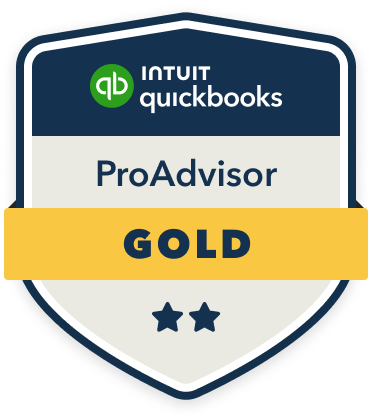Reconciliation Support: Making Sure All Vendor Bills Match Statements
Every small business owner knows the satisfaction that comes from seeing their financials line up perfectly. But for many, getting vendor bills to match statements is a source of constant anxiety, time-consuming double-checks, and the nagging fear of missing something important. The belief that “only I know what’s missing” is common—but it’s also a myth that holds you back from error-free financials and greater peace of mind.
Why Vendor Bill Reconciliation Matters
At its core, reconciliation support ensures that every vendor bill matches your statements, so what you owe is exactly what you’ve received—and nothing more. When this process works smoothly:
– Accuracy increases: Every transaction is accounted for, so your books reflect reality.
– Payment errors vanish: No more double payments, missing credits, or surprise invoices.
– Reconciliation headaches fade: You spend less time hunting for missing paperwork and more time focusing on your business.
According to a recent guide for small business owners, “The reconciliation process is almost always time consuming. However, one way to make it as painless as possible and reduce the number of discrepancies is to establish a routine schedule for the reconciliation.” This highlights a major concern: the fear of missing something important if you don’t personally manage every statement yourself.
Common Small Business Concerns
Many owners worry:
– “What if a vendor bills me twice, and I don’t catch it?”
– “What if credits I’m owed never show up?”
– “How do I make sure every payment matches the right invoice?”
As one expert notes, “Small business owners often feel they must handle reconciliation themselves to avoid costly mistakes, but this can lead to overwhelm and missed opportunities for error-free financials.”
Challenging the Myth: You Don’t Have to Go It Alone
The belief that only you can spot missing items or errors is understandable, but it’s not supported by best practices. In fact, relying on a structured reconciliation process—rather than memory or intuition—dramatically increases accuracy. Here’s why:
- Routine and documentation: Regular reconciliation (monthly, weekly, or even daily for high-volume transactions) catches issues early and prevents backlogs.
- Three-way matching: Comparing invoices to purchase orders and receiving reports ensures you pay only for what was ordered and delivered.
- Clear escalation procedures: When discrepancies arise, having a designated process for resolving them speeds up correction and keeps everyone accountable.
- Audit trail: Keeping detailed documentation of every step makes audits easy and protects you from disputes.
The Role of a Fractional CFO or QuickBooks ProAdvisor
You don’t have to memorize every payment or chase down every statement. That’s where a fractional CFO or QuickBooks ProAdvisor can transform your reconciliation process:
- Expert review: These professionals are trained to spot discrepancies, missing invoices, and duplicate payments—often using advanced tools and deep experience.
- Workflow automation: They set up systems in QuickBooks or other accounting software to automate matching, flag errors, and keep records organized.
- Consistent schedules: By establishing regular reconciliation routines, they ensure nothing slips through the cracks.
- Vendor communication: If a statement is missing a credit, or a bill doesn’t match your records, a fractional CFO can handle the follow-up, freeing you from tedious back-and-forth.
- Training and empowerment: They can train your team to follow documented workflows so reconciliation is consistent and reliable, even if you’re not directly involved.
How Reconciliation Support Works Step-by-Step
- Gather all documents: Collect invoices, vendor statements, payment receipts, and aging reports for the same period.
- Review each invoice: Check for correct amounts, invoice numbers, and vendor details.
- Match payments: Compare payment records to invoices to ensure every bill has a matching payment—and that no payments are duplicated or missing.
- Reconcile balances: Align your internal records with vendor statements, adjusting for any discrepancies.
- Resolve issues quickly: When errors arise, coordinate with vendors and departments to fix them before they affect cash flow.
The Emotional Upside: Satisfaction with Error-Free Financials
Imagine opening your books and seeing every vendor bill matched perfectly to statements. No more late-night spreadsheet sessions. No more panic about overlooked credits or overpayments. Instead, you experience:
– Relief: Knowing your records are accurate and payments are correct.
– Confidence: Strong vendor relationships built on timely, error-free payments.
– Clarity: A clean audit trail and financials ready for tax season, financing, or growth.
Automation and Security: Modern Tools for Modern Businesses
With today’s accounting software—especially when guided by a QuickBooks ProAdvisor—you can automate much of the process. Systems integrate directly with your payment and POS platforms, reducing manual entry and catching errors before they become problems. Regular audits and secure payment solutions further protect your business from fraud and data breaches.
Moving Forward: From Headaches to Harmony
Reconciliation support isn’t just about catching mistakes—it’s about transforming your relationship with your financials. By embracing structured processes, leveraging professional help, and trusting proven tools, you challenge the belief that only you can keep things accurate. Instead, you create a system where accuracy is routine, not a constant worry.
Letting go of reconciliation anxiety means gaining satisfaction from error-free financials, stronger vendor relationships, and more time to focus on what you do best: growing your business. If you’re ready for accuracy and peace of mind, now is the time to make reconciliation support a cornerstone of your operations.
Don’t let outdated beliefs or lack of oversight put your business at risk. By combining smart technology, sound legal structure, and expert financial guidance, you’ll build a compliance watchdog that protects your company and your peace of mind. The right support means every expense is accounted for—no matter who’s making the purchase—and nothing ever “slips through.”
By investing in professional financial guidance, you’re not just preparing for a sale. You’re creating peace of mind, stability, and options for yourself and those who matter most.
Don’t wait for “someday.” Start building your sellable business today.
Like this article? Get in Touch!





